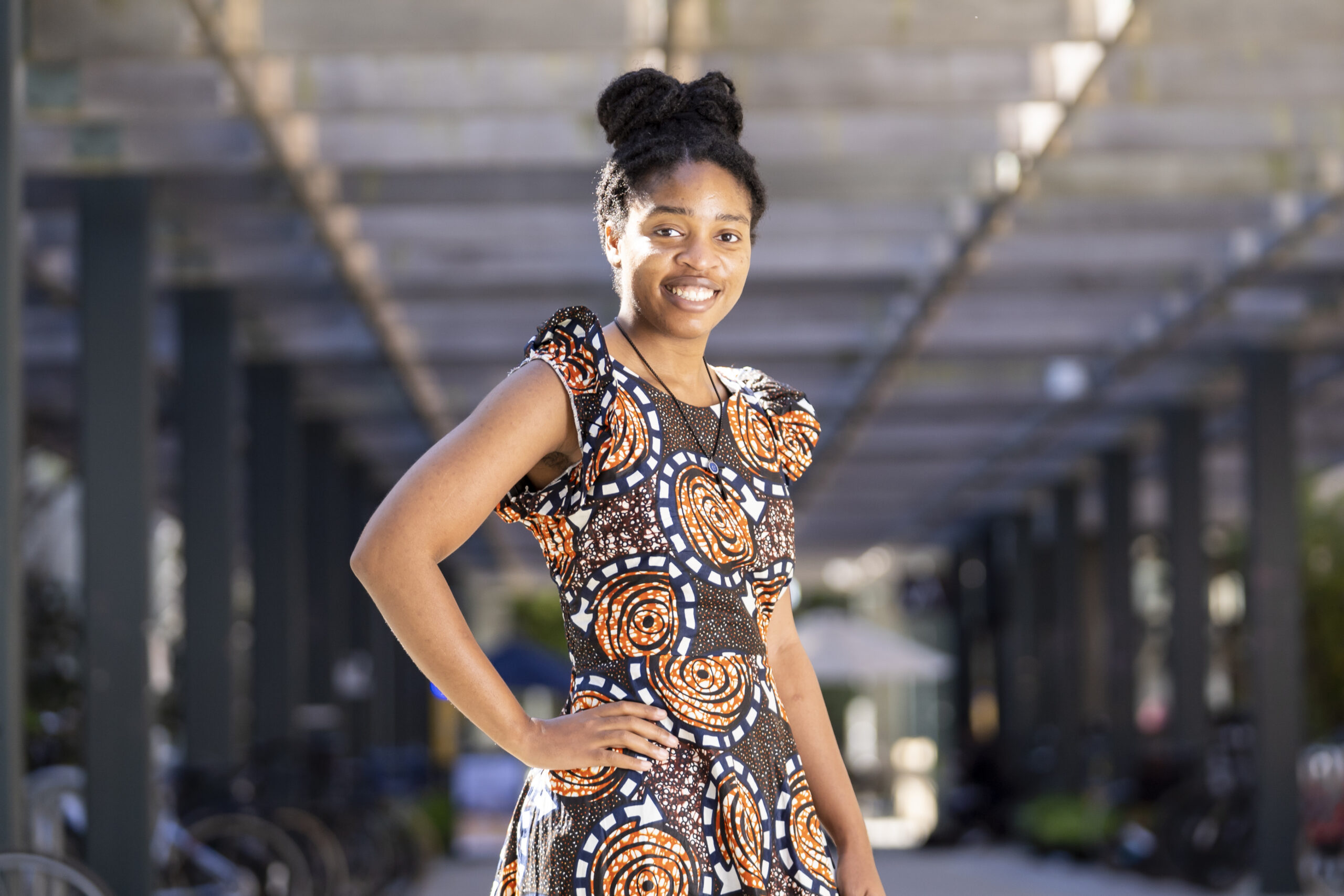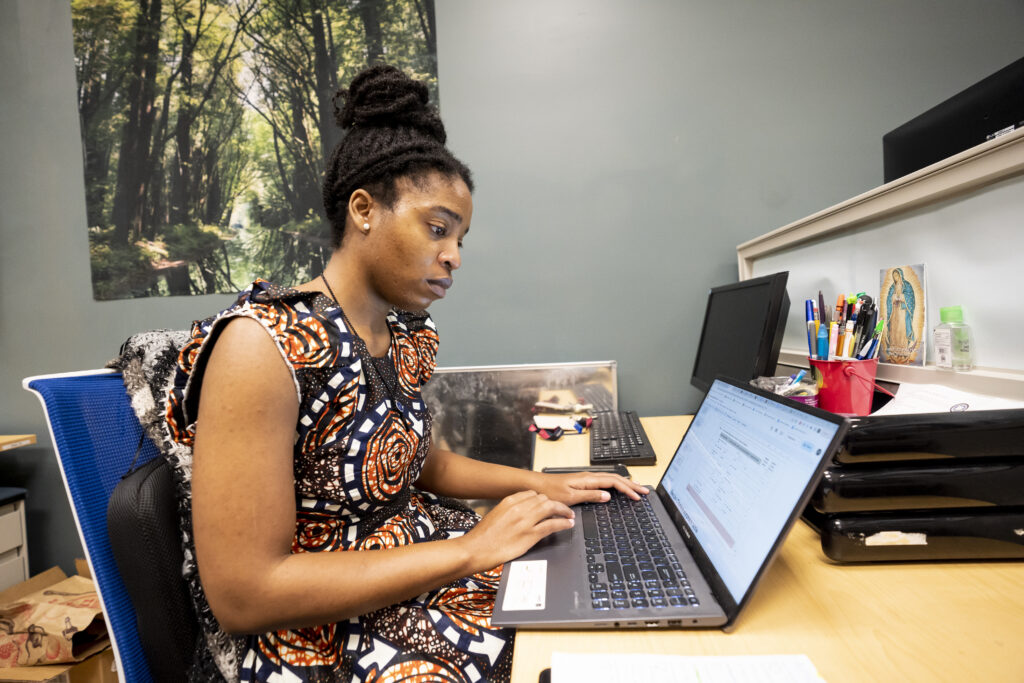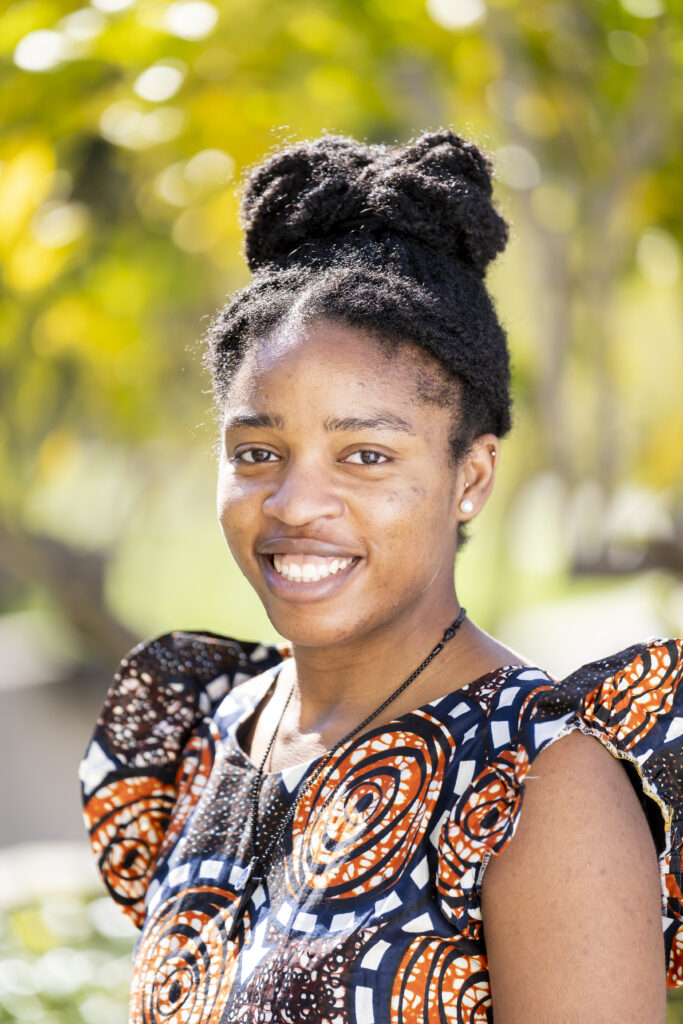New Doctoral Fellowship Supports IEOR Scholars and Honors Rising Star in Operations Research

The Department of Industrial Engineering and Operations Research (IEOR) is pleased to announce the establishment of The Marie Pelagie Elimbi Moudio Fellowship in IEOR. This prestigious fellowship will support the next generation of scholars working to advance operations research for the benefit of society. Named after current Ph.D. student Marie Pelagie Elimbi Moudio, this new fellowship was created by an anonymous IEOR advisory board member who was impressed by Pelagie’s research, activities, and leadership.
As a Student Health Ambassador, Pelagie designed a flexible educational model that integrated sustainability into educational systems across multiple African countries as part of her vision to create a more sustainable planet and a better future for her home country of Cameroon. Pelagie’s most recent work focuses on applying operations research and optimization to enhance global food and agricultural resource allocation, demonstrating her continued commitment to addressing critical global challenges.
Q&A with Marie Pelagie Elimbi Moudio
What sparked your interest in engineering?
I grew up learning practical applications of engineering from my dad, a now-retired mechanical engineer. He would find interesting ways to get my sisters and me interested in science and engineering topics. I remember learning how to interpret readings from an electric meter and learning the concepts of distance and velocity on our many road trips across Cameroon. As I grew up, STEM subjects came more naturally to me, probably because I found them interesting and fun as a child so I was always excited to learn more.
Why did you decide to study in the United States?
I never really decided to study in the United States, but the opportunity presented itself, and with the help of many people and organizations, I was able to get a first-class education in the US. It all started when I was selected to attend the African Leadership Academy, a unique high school in South Africa that seeks to create a strong network of talented African leaders to tackle the continent’s challenges. While studying there, I learned about the principles of self-leadership and entrepreneurship. In addition, I obtained rigorous preparation for the Cambridge Advanced levels. I worked with a dedicated staff who eventually helped me apply and get admitted into several universities in the United States.

How did you find out about Operations Research?
During my undergraduate studies at MIT, I was excited about building things with my hands. This led me to major in mechanical engineering with a focus on design and manufacturing. I took my first supply chain class in my senior year, and I was immediately excited about the possibility of understanding systems that govern the allocation and movement of products. I had already begun applying to graduate school programs in mechanical engineering. After being admitted to some of these programs, I quickly realized that I was less excited about the mechanical engineering projects I would be working on and more interested in my supply chain class. I reached out to my professor, who introduced me to the field of operations research. After some research, I decided to spend an additional year reapplying to these OR programs.
What are some of the challenges that you faced at UC Berkeley? How did you overcome those challenges?
I faced several challenges at different stages and in different areas of my life at UC Berkeley. However, one challenge that really shaped my early experience at UC Berkeley was overcoming the academic barrier of switching fields from mechanical engineering to operations research in graduate school. I even failed my preliminary examination in the first year, which at the time was the worst thing that had ever happened to me. I have never actually failed a class, much less a defining exam such as prelims. But I was able to get through this with the support of members of my community. My advisor, Professor Max Shen, had unwavering support in my ability to succeed and my research vision. I was tutored on the fundamentals by Professor Ilan Adler, and for the first time, I began to understand linear algebra. I also got lots of help from fellow graduate students in IEOR, especially Caleb, Junyu, and Yusuke, and beyond, through the Black Graduate Engineering and Science Students (BGESS) group. I am forever grateful to my community because I am a product of their support.

What are your future goals?
In the future, I want to continue working at the interface of data-driven research, technology, and policy to tackle complex problems around supply chains, resource management, and sustainability. I am not sure if that means staying in academia or if I want to branch out to more applied work in industry. I am also passionate about mentorship and education support. I benefited so much from generous and talented people willing to teach and guide me at different stages of my academic and professional journeys.
What do you do outside of academia?
I am passionate about initiatives around education, sustainability, and basic needs. I have been part of the Graduate Assembly, UC Berkeley’s graduate student government, for the past 6 years. During my tenure, I have held a number of roles, most notably serving for two years as the Vice President of Equity and Inclusion. In this role, I have focused on advocating basic needs support for minority graduate communities.
What advice would you offer students applying to or studying IEOR at UC Berkeley?
I would tell students to engage with the Berkeley community at large because the campus can get so big and siloed. You never know where you can get the resources and help you need to succeed. I sometimes found support in unexpected places such as through the Graduate Assembly and BGESS. Through these organizations, I have made lifelong friends doing work I care about.
The Marie Pelagie Elimbi Moudio Fellowship in IEOR honors and recognizes Pelagie's achievements, contributions, and boundless potential. It is an inspiring reminder for future generations of students to strive for excellence and positively impact the world through meaningful academic pursuits.